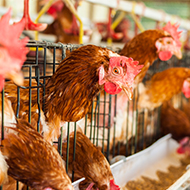RUMA CA&E releases 2024 Annual Progress Report
Although antibiotic use in dogs continues to decrease, antibiotic use in cats is increasing.
The Responsible use of Medicines Alliance – Companion Animal and Equine (RUMA CA&E) has released data in its 2024 Annual Progress Report on antibiotic use from 2022-2023.
The data reveals that, although antibiotic use in dogs has continued to decrease, antibiotic use in cats has begun to increase yet again.
Measured using the mg/kg metric, RUMA CA&E has recorded a 15 per cent reduction in antibiotic use in dogs between 2022 and 2023. This follows a trend as, with the exception of 2020-2021, antibiotic use in dogs has decreased year-on-year since 2016.
Antibiotic use in cats, however, had been showing a steady upward trend since 2015. Despite a decrease between 2021 and 2022, this year’s data shows an 11 per cent increase between 2022 and 2023.
The DDDVet data, which represents the average dose per kg animal per species per day, demonstrates a similar trend.
RUMA CA&E has also published data on Highest Priority Critically Important Antibiotics (HP-CIAs). The group says that products containing HP-CIAs provide valuable options for conditions which are more difficult to treat.
HP-CIA use in dogs has reduced by 14 per cent between 2022 and 2023. This is a nine year overall reduction of 57 per cent, bringing HP-CIA use to its lowest level since 2014.
There was also a 16 per cent reduction among cats between 2022-2023, taking cats’ nine year overall reduction to 42 per cent.
Gwyn Jones, RUMA CA&E chair, said: “RUMA CA&E’s mission has progressed in earnest over the past 12 months which has seen us continue our efforts to further evolve industry focus on antimicrobial stewardship across the CA&E sectors.
“Our key activities have included the delivery of another important industry roundtable event to continue to explore solutions towards reporting annual antibiotic usage figures for CA&E sectors; our Targets and Measures Working Group (T&MWG) has been working hard to further evolve a suite of measures beyond the national metrics for dogs and cats that were defined last year; and we have just completed the delivery of the third Veterinary Antibiotic Amnesty campaign which is one of our flagship industry AMS initiatives.”
Steve Howard, RUMA CA&E secretary general, said: “I am pleased to see that data from the latest UK-Veterinary Antimicrobial Resistance and Sales Surveillance (VARSS) Report (2023) which was released on 19 November 2024, is showing reductions in antibiotic use in dogs and HP-CIA use in cats between 2022 and 2023, which is testament to the extensive industry activities underway and overall commitment to antimicrobial stewardship (AMS) from the profession.”
The full report can be read here.
Image © Shutterstock



 An Avian Influenza Prevention Zone (AIPZ) has been introduced across Wales.
An Avian Influenza Prevention Zone (AIPZ) has been introduced across Wales.